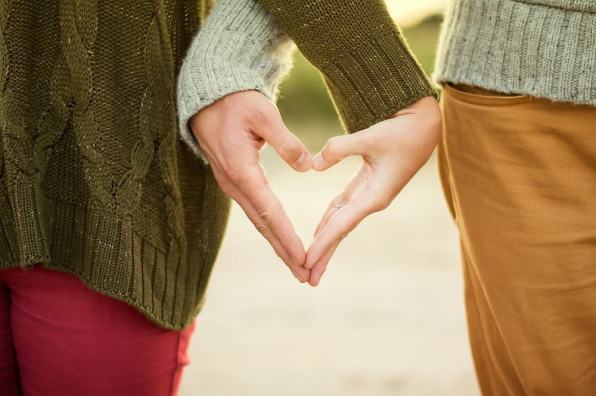Gratitude
The science around gratitude practices is now convincing so here are some top tools to integrate gratitude into you life more and more each day.

I’ve written about gratitude before, just after my youngest son had broken his arm.
Since then I’ve understood more and more the biology of gratitude, but also I’ve built up a bank of gratitude tools which I use.
John Milton (Poet) once said, “Gratitude bestows reverence, allowing us to encounter everyday epiphanies, those transcendent moments of awe that change forever how we experience life and the world.”
This is so true for me. The more I focus on what I have in my life to be grateful for, the more vibrant life becomes and the more alive I feel.
- What do you have to be grateful for today?
The science of gratitude
When John Milton wrote those words some time between 1608 and 1674 he didn’t understand the brain in the way that we do now. Biologically, when we practice gratitude we now knew that it can fire up 4 different neurotransmitters: dopamine, serotonin, oxytocin and endorphins.
Dopamine is part of our pleasure center and the more dopamine is produced, the more we want to do something. This brain chemical is associated with addictive behaviour; the compulsion to do more and more of something. So, the more we practice gratitude, the more we want to practice it!
Which is good because when we focus on what we are grateful for we increase the amount of serotonin we produce. Low levels of serotonin are linked with depression and increased aggression. When our serotonin levels are high, we feel better and because we feel happier we produce more serotonin; we create a virtuous circle.
There is some research that suggests that oxytocin is also increased through gratitude practice. This is the bond forming neurotransmitter produced during orgasm, birth and breast feeding to make sure we attach to each other. Certainly John Gottman found in his couples work that when couples had a ratio of 7 appreciations for every 1 negative comment, the relationship thrived.
Finally when we practice gratitude we produce endorphins which we more commonly hear about in relation to the runners high. Endorphins are released when we have a good laugh (which is why laughter yoga can make you feel so buzzed) and they also protect us from anxiety and depression.
When we focus on what what we are grateful for, we are not focusing on what is going wrong in our lives and just this act of changing our focus on attention reduces our stress by activating the parasympathetic nervous system which calms us down. Transactional Analysis explains it in terms of Strokes; what we pay attention to is what we get more of.
Joy is what happens to us when we allow ourselves to recognize how good things really are. –Marianne Williamson
So how can you boost your gratitude quotient each day?
- Experiment with the tools below and reflect on any differences you notice in your mood and energy levels.
Gratitude tools
Prepare for a day full of things to be grateful for
As soon as you wake up in the morning, grab a journal and write down all the things you have to look forward to that day. It could be your first cup of coffee, seeing a colleague at work, taking a break in the sun, hugging your kids in bed. this exercise pre-wires out brain to look for things to be grateful for and when we do it, we can add in gratitude blasts to our day.
Gratitude journals
Buy yourself a special note book or set up a file on your phone or computer and as you go through your day, write down everything you notice that you appreciate and feel grateful for. At then end of the day, just before bed, list all the things you forgot during the day, even the small things like the smile a stranger shared with you, or the things you take for granted like your health and your home.
Compliment other people
This has to be sincere; never fake a compliment; people can tell. Compliment people you know and people you don’t know. The other day after a swim I noticed how a lady drying her hair and it looked so shiny and radiant. I told her and she was so pleased. I must have a hair thing because at Christmas I was n a supermarket and saw a woman who was older than me with crystal white hair cut into a sharp bob; she looked stunning and I told her so. She told me how long it had taken her to have the courage to let her hair go white. I was pleased I had told her.
Write a thank you letter
So many people help us in our lives and I’m not sure we take the time to notice and appreciate them all. I was so glad that at Christmas I had written an email to my Light Holder Alan telling him all the things I appreciated that he had helped me with and meant to me. He died a few weeks ago, I am so glad he knew that I appreciated him.
When I was in my 20s it dawned on me how much my mum had done for us and so I wrote her a letter telling her how grateful I was to her and all that I wished for her in her life. Sadly, not all my wishes for her came true as she died young. When we cleared through her things I found the letter I had written to her in with her special papers and was so glad I had written it.
Saying grace
I’m not at all religious but we were at a gathering the other week where a grace was said in appreciation of the food we were about to eat. You don’t have to be religious to have an appreciation-sharing at meal times, where you listen to the things you have appreciated in each others days.
Celebrating
Whether it is an anniversary, a success, a job well done or good fortune, celebrating when things go well allows us to focus our attention on the positive and share it with others.
Gratitude walk
If you’re finding it hard to see things in your day to be grateful for, take yourself for a walk outside, even a short walk will do. As you are walking use all of your senses to pay attention to the world around you. As you walk say thank you for your sight and all the things that you can see, your hearing and all the things you can hear, your sense of touch and all the things you can feel, your sense of smell and all the things you can smell and you might even notice tastes and be grateful for them. We take our senses for granted and we take the simple things, that we habitually experience for granted. Be grateful for the road you are walking along, the air, the sun or the rain, the birds, the shops, the traffic.
Find the learning or the gem in difficult situations
There is no denying that life can be hard. When death, loss of sickness comes into our life it is hard to see this as something to be grateful for and yet if we look hard, we will find things; the people who rallied to support, the new perspective which the experience gives you, your ability to survive in the face of adversity.
Gratitude with your children
Teaching your children how to be appreciative and grateful in their lives creates a healthy habit which will stand them in good stead as they grow up. Play Roses, Thorns and Appreciations with them at the end of the day. Each person takes it in turn to talk and no one else is allowed to talk; this is not a conversation, it is an opportunity to listen deeply and respectfully to each other. A Rose is anything that has gone well, that they liked, that they thought was fun. A Thorn was anything they didn’t like or enjoy. Appreciations are things that they want to appreciate in themselves or other people so if someone has helped them or done something for them, this is their chance to express gratitude for that.
- Which tool will you use?
- How will you remember to do it?
Gratitude practice, which ever tool you use, brings you into the present moment and it teaches your brain to focus on what is going well and what is good in life.
“There are only two ways to live your life. One is as though nothing is a miracle. The other is as though everything is a miracle.” – Albert Einstein
Enjoy and if you want to read more or get in touch re: coaching you can do that here
Julie Leoni
Coach, author, podcaster, facilitator, Yoga and psychology teacher, learner
I have over 30 years of experience and qualification in various therapeutic and meditation/mindfulness based approaches. I work with change. Some changes we chose, others happen to us. Sometimes we know we want to change but don't know how. Sometimes we don't want to change but external events or people are forcing us to change. The menopause, children leaving home, the end of a relationship or job, becoming a parent, coming out, bereavement are just some of the personal changes I support people with. I also work with people who want to make changes to their life and wider world in response to social issues such as Covid, the climate crisis and racial, sexual and gender inequalities. Times are changing whether we want them to or not and we need to be nimble, agile, curious and open in order to part of the new story emerging. Work with me to get clear on what matters to you, what makes your heart sing and what kind of future you want for yourself and those you love. It is possible to live differently, get in touch to explore how.



